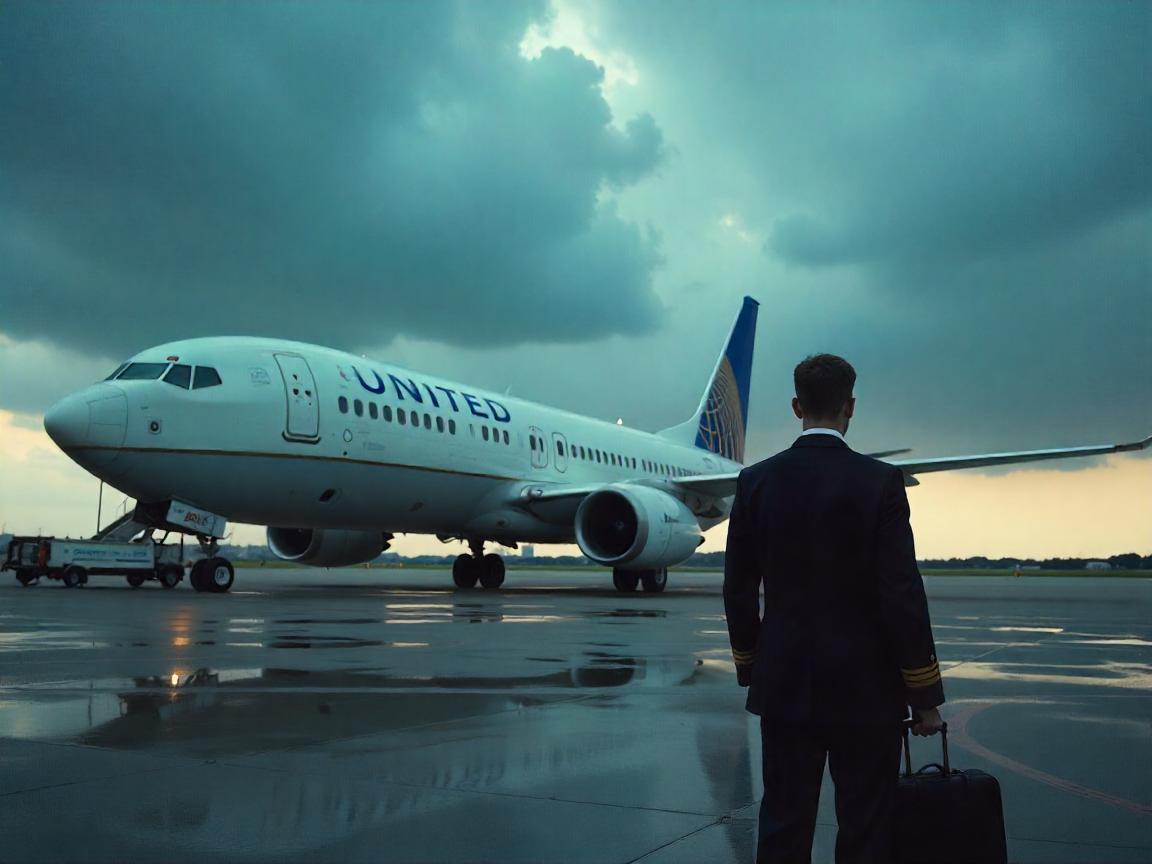Thursday, July 10, 2025
United Airlines faces a legal firestorm as shocking allegations emerge that a pilot’s concussion was misdiagnosed as alcoholism, triggering career-ending consequences. Now, there’s a new update you need to know that’s sending tremors through the entire aviation industry.
Captain Michael Tallon, a seasoned United 737 pilot, claims a simple accident turned into a nightmare when a fall in the Azores led to concussion symptoms. Instead of medical care, he says he was forced into rehab for alcoholism he never had.
This high-stakes lawsuit reveals how a single misstep can destroy a pilot’s career—and raise serious questions about safety, privacy, and airline protocols.
Moreover, pilots everywhere are watching anxiously, wondering if they could be next.
United Airlines faces a legal firestorm, and the aviation world waits breathlessly for answers. The stakes couldn’t be higher—for Tallon, for United, and for the future of air travel safety.
A Fall in the Azores Sparks Catastrophe
In June 2023, Captain Michael Tallon suffered a violent fall during a layover in the Azores, crashing headfirst onto cobblestones. The accident left him visibly injured, with classic concussion symptoms: slurred speech, confusion, and cognitive delays.
Yet, back in the United States, the nightmare was only beginning.
Instead of receiving targeted medical care for his head injury—as airline policy demands—Tallon found himself caught in the gears of United’s Human Intervention Motivation Study (HIMS) program.
This program, widely used in the airline industry, helps pilots battling substance abuse return to flying safely. However, Tallon’s case is now shining a harsh light on how easily a medical crisis can be misread as misconduct, putting careers—and public safety—at risk.
Airline’s Response Raises Eyebrows Across Aviation
Despite Tallon’s visible concussion symptoms, United managers reportedly fixated on a single detail: Tallon admitted he’d enjoyed one drink with dinner before his fall.
That lone admission triggered a suspicion of intoxication so severe that United demanded Tallon enroll in inpatient addiction treatment.
Across the aviation industry, insiders are rattled. Pilots depend on precise medical protocols to protect not only their own health but the passengers who trust them every day. Tallon’s ordeal underscores the terrifying reality that a medical event can cascade into accusations, job loss, and industry blacklisting.
For Tallon, the consequences were devastating.
Forced Into Rehab Despite Clean Medical Record
Under threat of losing his job, Tallon entered a Connecticut rehabilitation facility. For weeks, he endured rigorous assessments and counseling designed to break substance dependency.
Yet multiple medical professionals concluded the same result: Tallon showed zero evidence of alcohol dependence.
His primary care physician, an outpatient therapist, an Alcoholics Anonymous sponsor, and even his aftercare counselor—all agreed he didn’t meet criteria for any substance use disorder.
However, United reportedly wasn’t satisfied. The airline demanded further neuropsychological testing and psychological treatment, citing “denial”—a term often used in recovery circles to suggest patients are hiding addiction.
These continued demands left Tallon cornered, exhausted, and ultimately defiant.
Airline Industry Faces Ethical Crossroads
In April 2024, even United’s own psychologist concluded Tallon had no alcohol abuse issues.
Still, United insisted on further invasive evaluations. Tallon refused. In February 2025, United terminated his employment, citing noncompliance with the HIMS program.
This action ignited alarm throughout the travel industry. For pilots, the precedent is chilling. Could a slip, a fall, or a single misunderstood symptom lead to forced treatment and career annihilation?
For airlines, the dilemma is equally dire. Balancing safety with human dignity demands precise judgment. Mistaking medical conditions for substance abuse risks legal action, reputational harm, and even potential safety consequences if competent pilots are unjustly sidelined.
Broader Impact on Airline Operations
The stakes extend far beyond one man’s career. Airlines worldwide rely on the HIMS program to safeguard public trust. Yet Tallon’s lawsuit raises a stark warning: misuse or misinterpretation of such programs could spark pilot shortages and operational chaos.
Pilots, already scarce in today’s global aviation market, are expressing fear over seeking help for legitimate health issues.
If medical evaluations can be twisted into false narratives of addiction, pilots may avoid reporting injuries or illnesses, potentially jeopardizing aviation safety.
Moreover, the fallout could reverberate through airline HR departments, where leaders must now weigh legal risks against safety mandates.
Financial and Industry Ramifications
United’s legal exposure could be significant. Beyond reputational damage, the airline may face costly settlements or precedent-setting judgments that reshape how airlines manage pilot wellness programs.
Meanwhile, the Air Line Pilots Association (ALPA)—the union representing thousands of pilots—could find itself pressured to overhaul advocacy practices. Tallon’s lawsuit claims union representatives pushed him to falsely admit to alcoholism under job-threat pressure.
This clash strikes at the heart of trust between pilots and unions tasked with protecting their careers. It also signals turbulence ahead for labor negotiations as pilots demand safeguards against wrongful medical or psychological labeling.
A Pilot’s Fight for Redemption
Tallon’s journey is far from over. His federal lawsuit in Chicago seeks compensation for wrongful termination, emotional distress, and potential loss of future earnings.
Beyond the courtroom, his case has sparked debates throughout pilot lounges and aviation forums worldwide. Many see his experience as a cautionary tale—and a wake-up call for a travel industry grappling with profound responsibility.
Every flight that takes off depends on skilled professionals whose health, judgment, and dignity must remain protected. Tallon’s story underscores just how delicate—and crucial—that balance truly is.
The Aviation World Holds Its Breath
As Tallon’s lawsuit advances, the aviation industry braces for waves of scrutiny. Airlines, unions, regulators, and travelers alike are watching closely, knowing the outcome could redefine medical protocols and trust in the skies.
Meanwhile, pilots everywhere are left asking a chilling question: If this could happen to Tallon, could it happen to me?
Tags: Aviation industry, azores, Chicago, Connecticut, Europe, Illinois, New York, O’Hare Airport, Portugal, United Airlines, United States
